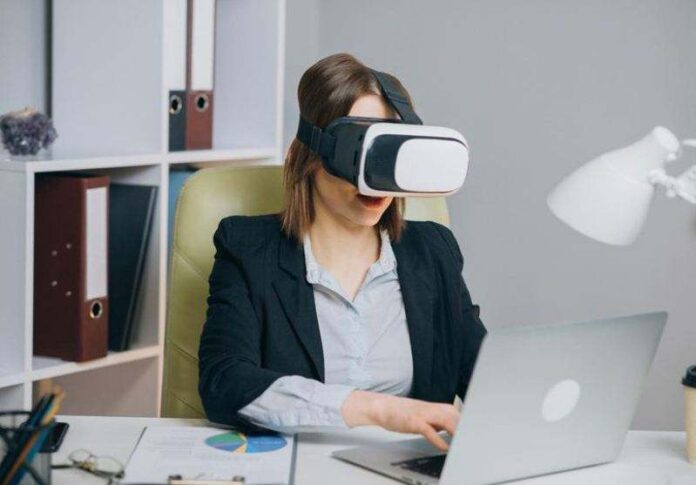
Virtual Reality is a computer-generated simulation of a three-dimensional image or environment that can be interacted with in a seemingly real or physical way, by activating sensory faculties in the brain using a specialized device such as a virtual reality headset.
A person using virtual reality equipment is able to “look around” the artificial world, move around inside it, and interact with features or items depicted there.
According to research by the International Data Corporation (IDC) research, VR and AR market will reach 15.5 billion euros by 2022. ARand VR spending would reach $18.8 billion in 2020 with a five-year CAGR of 77.0% by 2023. Managed IT Services Vermont offers extensive resources on how augmented reality and virtual reality are set to change the business landscape.
3 Diverse VR Applications Set to Change the Business World
VR in education and training
The use of virtual reality in education has massively increased over the past few years. Leveraging virtual reality enhances a learner’s motivation to learn and improves engagement by creating an environment that is personalized to the learner.
Research has shown that students who used VR were able to complete their tasks faster and more accurately than learners who did not use virtual reality. The technology will get better and better as we continue down this road.
VR in industry and work
Remote and hybrid working is becoming increasingly common. Although this is highly beneficial, as it enables employees to work from anywhere, there are many business challenges that occur as a result. This can contribute towards a company culture that lacks cohesiveness or team building.
VR technology can be used to create a cohesive, fully immersive, and realistic experience for all employees regardless of where they are in the world.
This will strengthen the relationship between colleagues and help build positive relationships between employees in a professional setting. In a 2020 report created by VR Intelligence, 65% of the AR companies surveyed were engaged in industrial applications, while only 37% were working on consumer products and software.
VR in games and entertainment
The VR industry is developing quickly due to a large market of people who are willing to spend money on experiences that are far more immersive than anything currently possible with consumer technology. For instance, real-world virtual reality entertainment providers like Sandbox have started to operate real-world VR centers designed to give customers access to this emerging platform at an affordable price.
The advantage of VR centers is that they can leverage equipment that it simply wouldn’t be practical or affordable to use in our homes offers some of the most immersive experiences yet created.
They make use of full-body haptic feedback suits that let groups get immersed in a reality of their choice, such as conducting missions in deep space, aboard ghostly pirate ships, or surviving a zombie infestation.
We have already seen the application of such technology in immersive training simulations for elite military and rescue organizations. Now anyone can enjoy it at their own leisure.
Bottom Lines
Augmented and virtual reality is poised to revolutionize business in the coming years. Retail, real estate, automotive, and media companies will incorporate these technologies into their internal business processes, marketing strategies, and client servicing.
As these technologies become increasingly ubiquitous, their use of these technologies will grow exponentially. Service providers are likely to find more and more opportunities for developing AR/VR solutions for clients.
For more information on how your local business can implement VR, please contact IT Consulting.

